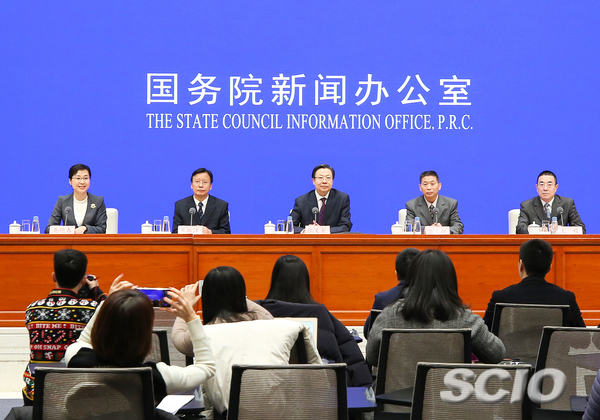Penalties to increase for failing to pay migrant worker salaries on time
Defaulting on salaries for migrant workers will be harshly punished under a new State-level regulation that will take effect May 1, senior officials said at a news conference organized by the State Council Information Office on Tuesday.
Defaulting on salaries for migrant workers will be harshly punished under a new State-level regulation that will take effect May 1, senior officials said at a policy briefing organized by the State Council Information Office of China on Tuesday.

The new regulation, signed by Premier Li Keqiang on Dec. 30, was unveiled on Tuesday.
According to the regulation, construction project contractors are required to set up different accounts to keep migrant workers' salaries separate from expenses for construction materials and management.
Subcontractors are also responsible to ensure workers get their salaries on time.
Contractors who refuse to open separate bank accounts or can't pay workers on time will face punishment varying from financial penalties to project suspension or revoking the contractor's certificates.
The regulation also defines responsibilities of government. For example, extra money should be set aside in case government-sponsored projects default on salaries for migrant workers.
Also, officials who fail to properly supervise companies paying arrears to migrant workers will be punished.
A blacklist of companies with poor credit, put into use Jan. 1, 2018, has also helped migrant workers claim their salaries.
Wang Cheng, director of labor and social security inspection from the Ministry of Human Resources and Social Security, said at the news conference that people or companies that default or skimp on migrant worker's salaries without an excuse will be blacklisted, especially in situations that led to violent events due to arrears.
"Those blacklisted people or companies will be restrained in tendering and bidding, getting certificates or tax preferences," he said. "They will also be prohibited from consuming luxury goods, taking planes or high-speed trains. And those refusing to pay arrears will be transferred to judicial organs."
Last year, the number of cases of migrant workers facing delayed payment decreased by 33.1 percent compared with 2018, according to the Ministry of Human Resources and Social Security.
Zhang Yiquan, vice-minister of human resources and social security, said at the news conference that migrant workers have become an important group supporting the nation's development.
"The government has made great efforts to protect migrant worker's rights, especially their salaries, and has seen notable progress," he said.
"However, the problem of defaulting on migrant worker's salaries has not been effectively eradicated because of poor management, supervision and imperfect regulations, which required us to take stronger measures."
"Getting paid is the basic right of migrant workers," he said.

